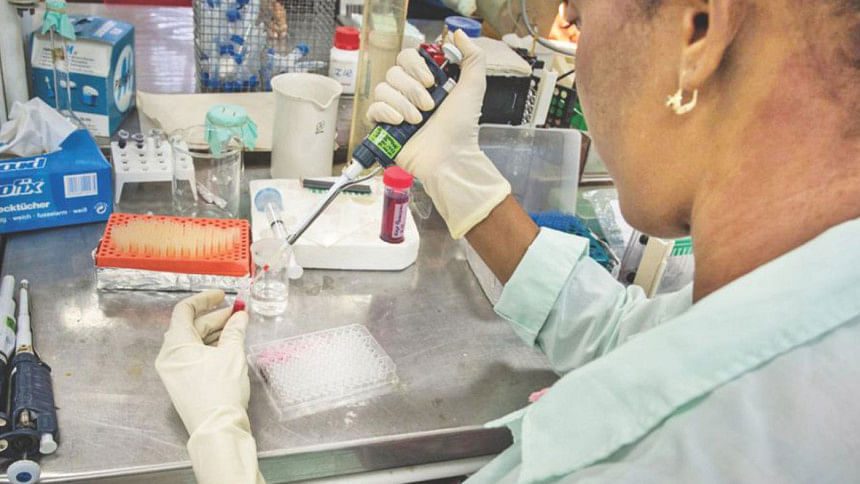Cure for cancer might accidentally have been found

Scientists might have accidentally made a huge step forward in the search for a cure for cancer — discovering unexpectedly that a malaria protein could be an effective weapon against the disease. By attaching malaria proteins to cancer cells, tumours could be burrowed into and then destroyed and it seems to be effective on 90 per cent of types of cancers.
Danish researchers were hunting for a way of protecting pregnant women from malaria, which can cause huge problems because it attacks the placenta. But they found at the same time that armed malaria proteins can attack cancer, too — an approach which could be a step towards curing the disease.
The process has already been tested in cells and on mice with cancer, with the findings described in a new article for the journal Cancer Cell. Scientists hope that they can begin testing the discovery on humans in the next four years.

 For all latest news, follow The Daily Star's Google News channel.
For all latest news, follow The Daily Star's Google News channel. 



Comments